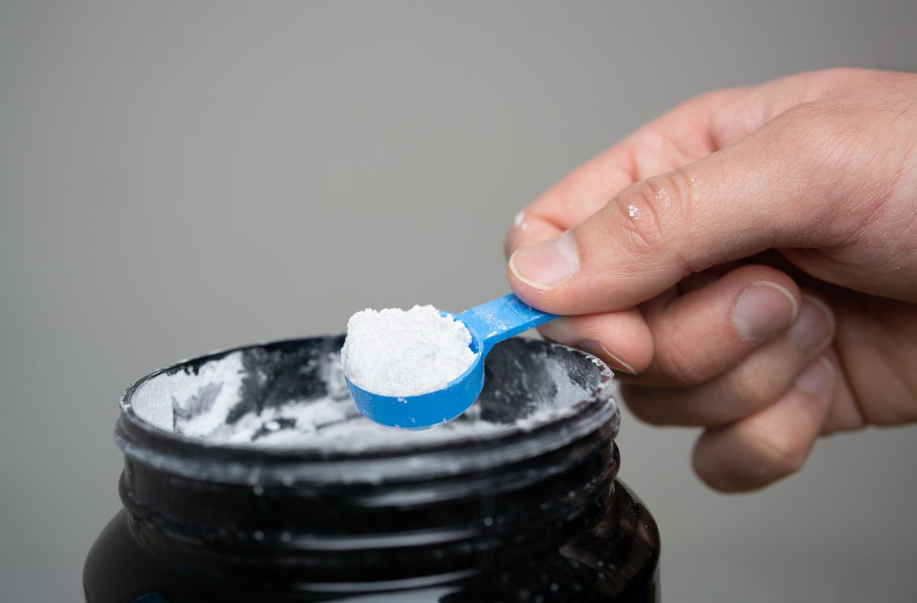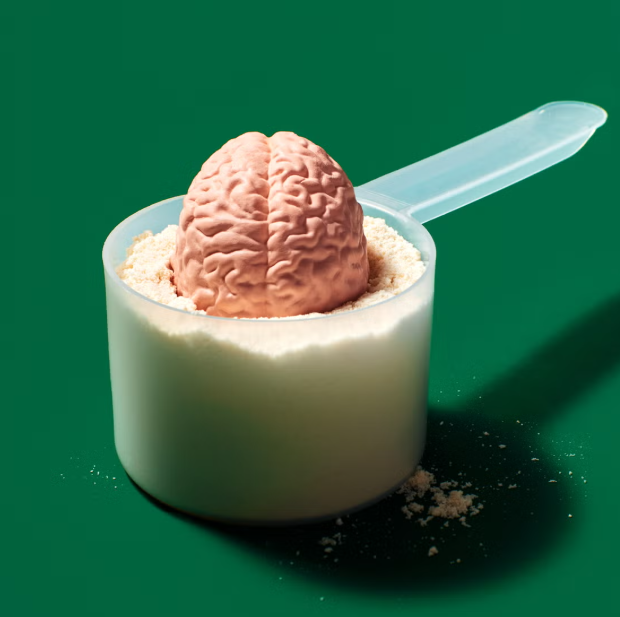ONE OF THE most popular – and well-researched – performance supplements on the market, creatine is everywhere right now. Along with its long-time users in training and bodybuilding circles, creatine has now reached the mainstream, and its powers are being hailed as an everyday supplement as much as they are in the gym. But that begs the question: can we have too much of a good thing?
American golfer Ben Griffin thinks you can. The World No. 17 has said that he believes he ‘overdosed’ on the supplement at the start of the final round at the BMW Championship after mistakenly swallowing a ‘large rock’ of creatine.
Griffin, who multiple news outlets have reported said he usually takes 15mg of creatine daily, described becoming ‘super shaky’ and feeling like he ‘had tremors’ after accidentally swallowing the large clump.
‘The problem was, I have a tub and I was basically down to the very end, and I just had this rock of creatine that was all built up together,’ the 29-year-old told CNN Sports. He said that this meant it didn’t dissolve properly and ultimately led to him swallowing a large amount at once and his body acting ‘weird’ soon after.
Can you overdose on creatine?
MH’s fitness director Andrew Tracey says it’s ‘highly, highly unlikely that creatine is the culprit here’ and that the 15mg figure must be mistaken.
It’s much more likely they mean grams here because 15mg is equivalent to 0.015g, and the standard dose of creatine is around 3-5g (5,000mg).
‘It would be hard to even measure out such a small dose, and even a large lump of dried creatine is only likely to be around a standard dose of 5g,’ says Tracey. ‘There’s no real mechanism via which creatine could have caused the effect Griffin describes, especially at such a pedestrian dosage. It seems more likely that either he was using a creatine blend that contained other ingredients, such as caffeine and other stimulants.’
For visual reference, even a ‘solid lump’ of 20-25g of creatine ‘would be the size of a tennis ball’ and ‘would not have the effect’ Griffin describes.
Should you super-dose creatine?
MH’s fitness director Andrew Tracey says it’s ‘highly, highly unlikely that creatine is the culprit here’ and that the 15mg figure must be mistaken.
It’s much more likely they mean grams here because 15mg is equivalent to 0.015g, and the standard dose of creatine is around 3-5g (5,000mg).
‘It would be hard to even measure out such a small dose, and even a large lump of dried creatine is only likely to be around a standard dose of 5g,’ says Tracey. ‘There’s no real mechanism via which creatine could have caused the effect Griffin describes, especially at such a pedestrian dosage. It seems more likely that either he was using a creatine blend that contained other ingredients, such as caffeine and other stimulants.’
For visual reference, even a ‘solid lump’ of 20-25g of creatine ‘would be the size of a tennis ball’ and ‘would not have the effect’ Griffin describes.
What is the optimum dose of creatine?
Confusing mis-measurements aside, what is the recommended dose? ‘Most research conducted on creatine and strength/muscle gains has been done with dosages of around 3-5g,’ says Tracey. ‘Traditionally, an initial “loading phase” of around 20-25g per day for a week was encouraged to help to saturate muscles, but studies have shown this level of saturation still occurs on lower doses (3-5g), over 28 days.’
Signs you could be taking too much creatine
While you may experience some side effects following creatine supplementation, they can usually be managed by adapting your intake method. If you’re struggling with stomach issues, for instance, ‘this can often be mitigated by splitting your creatine dosage evenly across the day, instead of punching yourself in the guts with all of it in one go,’ advises Tracey.
The two main side effects are gastrointestinal distress and headaches. The latter is usually down to dehydration because creatine causes water to be drawn into the muscles, and can be managed by drinking more water.
Is creatine dangerous?
The short answer: no. Creatine is one of the most well-researched supplements out there, with its health and performance benefits touted by experts far and wide.
If you have any pre-existing kidney conditions, however, you should approach with caution. ‘People with pre-existing kidney dysfunction may find that creatine – or more accurately “creatinine”, the waste product that creatine converts to – worsens their symptoms,’ highlights Tracey. ‘But studies have shown that creatine does not have any adverse side effects on otherwise healthy kidneys.’
It’s also always worth checking what exactly is in your creatine supplement and cross-referencing it with other things you might be taking. Rather than the creatine itself, it might be something else that’s causing you discomfort or worrying symptoms, as was likely the case with Griffin’s ‘overdose’.
This article originally appeared on Men’s Health UK.
Related:
10 surprising, science-backed benefits of creatine
Creatine can boost the benefits of therapy in treating depression















